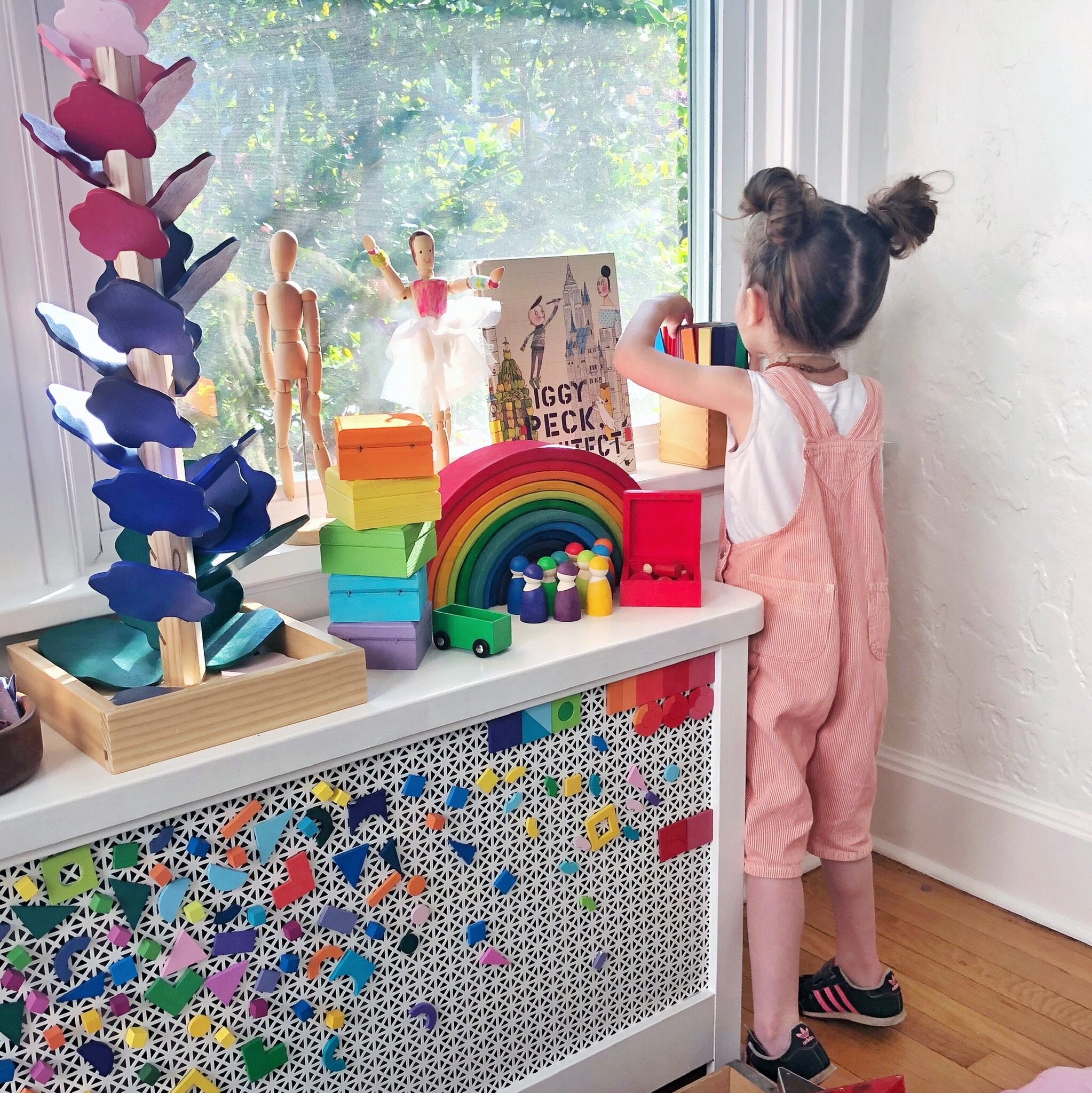Narrating Play: Boost Your Child's Growth & Independence
/Sometimes playing with your baby can feel daunting. Here’s a way to play that will not only boost development but also build the foundation for independent play later on.
Research shows that simply talking about what your child is doing during play (also called ‘narrating’ or 'sportscasting') can really help them play on their own, rather than us always guiding the play.
Here is what that might sound like when your baby is playing on their play mat:
I see you working on that! You're reaching out for that swinging ball hanging there. I see your little fingers trying to grasp it. And now you've turned your head towards the crinkly toy – it looks like you like the sound it makes when you touch it. Your legs are kicking! Oh, did the mirror catch your eye? There's a cute baby in there! You're rolling onto your side; you're getting so strong. That rattle seems interesting, doesn’t it? I hear it jingle every time you shake it. You seem so curious, exploring all these different textures and sounds on your play mat.
Here is what narration might sound like when your baby is crawling to reach a rattle:
"You've spotted the rattle, haven't you? You are getting closer and closer to it! I see you reaching out, stretching your arm. Almost there... and you've got it! Wow, you did it! I hear the sound of that rattle when you shake it. Your big smile tells me you're so proud of yourself, and so am I!"
Here's why narration is a GREAT way to play with your baby:
Encourages Language Development: When you narrate your child's play, you're essentially describing their actions, thoughts, and feelings as they engage in playtime. This running commentary not only enriches their language exposure, helping them develop vocabulary and comprehension, but it also serves as a guide for you. It ensures you remain an observer, allowing your little one to take charge of their play, rather than inadvertently taking over for them.
Narration Fosters Imagination and Creativity: When you describe your little one’s play without directing it, it encourages them to explore and experiment independently, leading to more imaginative, confident, and creative play experiences.
Narration Builds Confidence and Independence: Narrating their play empowers them to take the lead and make choices, which can boost their confidence and sense of independence.
Narration Promotes Self-Directed Learning: Independent play is an essential component of self-directed learning. When children are given the opportunity to explore and make decisions during play, they develop problem-solving skills, decision-making abilities, and a natural curiosity for the world around them.
Narration Respects Autonomy: Allowing your little one to engage in self-guided play respects their autonomy and preferences. It acknowledges that play is their most important work and that they are the expert of their own play.
Narration Supports Long-Term Engagement: Children are more likely to stay engaged in play when they feel a sense of ownership and control over it. Narrating their play while letting them take the lead keeps them involved for more extended periods.
Here are a few more narration examples:
“You are laying those blocks out long and flat over here and up tall over here. How interesting.“
"Those dollies are sad and you're holding them. I bet you know a lot about taking care of babies."
“I’m watching you create the lines in that picture so carefully.“
"I can see how hard you are working. I’ll move over here so I don’t get in the way."
Narrating your child's play is super beneficial—it boosts their language and independence. But balance is key. Sometimes, kids want us to play with them, and that is great too. Follow their lead and your own instincts. Don’t overthink it. All forms of play are super beneficial.
The Play Plan
Now that you understand how to enhance your child's play skills and why it matters, it's time to put it into action. We have created a simple play plan using materials you already have at home. This play plan is designed to get your kids playing! Check it out HERE







Why trying too hard backfires/ loose routines/ screens are not the enemy/ ways to deal with boredom/ easy summer play ideas